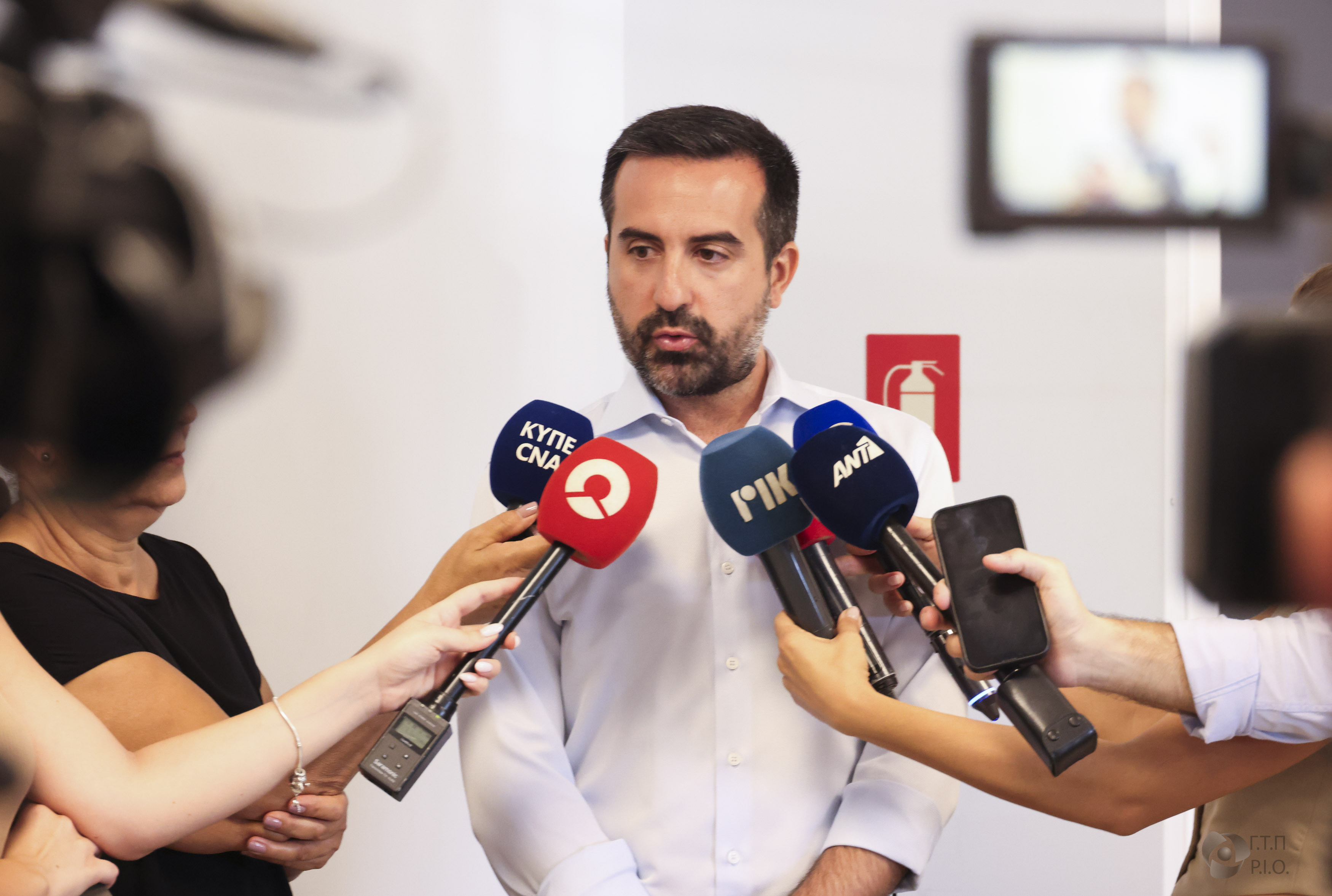The government is being sued for migrant pushbacks over the dozens of asylum seekers still stranded in the buffer zone, while the deputy migration minister remained defiant on Wednesday saying the Green Line would not become a route for migrants.
In total, 46 migrants are suing, and the case has been filed to the administrative court of international protection by lawyer Nicoletta Charalambidou who has taken on the case pro bono.
The developments come amid fresh allegations of more pushbacks as Deputy Minister for Migration Nicholas Ioannides on Wednesday dug his heels in and said the Green Line would not become a way for migrants to enter Cyprus.
“Cyprus has taken a decision that it will not accept flows through the Green Line, particularly as we’ve managed to have zero arrivals via sea.”
As tensions between the government and the UN have been increasing amid accusations of lying and pushbacks, the UNHCR told the Cyprus Mail the total number of migrants currently stranded in the buffer zone amounts to 70.
“The last pushback took place was yesterday [Tuesday],” public information officer for the UNHCR Emilia Strovolidou said, adding it concerns 10 people including four unaccompanied minors.
Ioannides had gone to visit the Kofinou and Limnes reception centres on Wednesday morning and told a pool of reporters it was important to clarify that “we do not want to clash either with Unficyp or the UNHCR. This is why we are in dialogue with them to solve the problem.”
Asked how long the existing situation would continue considering there are plenty of points where migrants could cross through, and whether a solution would actually be found, Ioannides said “the Green Line regulation allows us to monitor the Green Line over illegal migration.”
Currently, talks are underway to assess how the problem can be solved. “We do not ignore the humanitarian aspect, this is why we offer help, whatever it is these people need.”
Last week, sources told the Cyprus Mail the brunt of the food offerings were provided by the UN which is struggling as resources are dwindling.
Asked whether Cyprus would seek out the help of the EU, the deputy minister said “the EU is currently not involved and does not need to be.
“The important thing is that there is no intervention from the EU, in terms of pressures to Cyprus, because they understand the situation.”
In June, the European Commission told the Cyprus Mail it was closely monitoring the situation and in contact with Cypriot authorities, while it stressed the right to apply for asylum.
Where the lawsuit is concerned, Charalambidou said “it is clear the Republic of Cyprus is violating EU and international law.”
People should have access to asylum procedures and the government is actively preventing this from happening, she told the Cyprus Mail.
She echoed statements made by legal experts in the past that the buffer zone is part of the Republic’s territory and individuals there should have access to asylum in any case.
Nonetheless, “the majority of the migrants had in fact entered government-controlled areas and pushed back to the buffer zone.”
There were even cases where people had even gone to Pournara and sent back to the buffer zone against their wish, Charalambidou said.
“These people are not illegal migrants. They are asylum seekers and come from countries where prima facie they have valid asylum claims.”
The countries include Somalia, Sudan, Syria, Afghanistan and Iran. Charalambidou is taking on the case pro bono, and the UNHCR is covering stamp expenses.
According to the deputy minister of migration, ongoing discussions with the UN are not only limited to the individuals currently in the buffer zone “but the broader approach of [migrant] flows from Turkey, via the occupied territories to the free areas”.
The efforts are centred on “regulating the situation” so the Green Line does not become a route for migrants, as well as solving the existing problem of the people currently stuck there, he said.
“The Green Line is not a border. We do not ever want to become a border. It is a peculiar situation, we have a military occupation, and we should take this fact into account, that it is not a border.”
Commenting on the conditions in Kofinou, Ioannides described “respectable living conditions” for asylum seekers waiting for their applications to be examined.
“The conditions are very good, there is a/c and food. The children go to school and that is very important. We are interested in the well-being of these people.”
As far as the Limnes reception centre is concerned, Ioannides specified it is a huge project under construction which can accommodate 1,000 individuals and a pre-departure site of 800 spots.
The latter is for people who are to be returned to their country of origin.
“Cyprus is exerting a very important effort to meet its international obligations but ensure legality is safeguarded.”
So far this year, there are more migrant returns than arrivals and efforts towards better infrastructure are geared to migrants allowed to remain in the Republic, he said.
Conditions for the migrants living in UNHCR tents at the buffer zone have been described as highly concerning, as they have been left under Cyprus’ blazing heat to deal with snakes, mosquitoes and showers with the use of a bucket.
Many have reported feeling depressed and hopeless over the uncertainty which has hung over their fate since the first group of arrivals in mid-May.
The government has cited the Green Line regulation for its refusal to allow them to apply for asylum, which has raised eyebrows in UN circles whose officials have told the Cyprus Mail the government’s handling of the matter violates international law.
All migrants stranded in the buffer zone have reached the island through the north, via Turkey from countries including Somalia, Sudan, Congo, Syria, Iran and Afghanistan.







Click here to change your cookie preferences